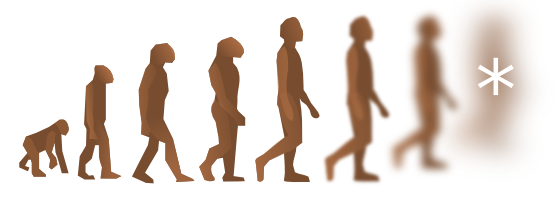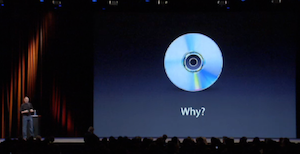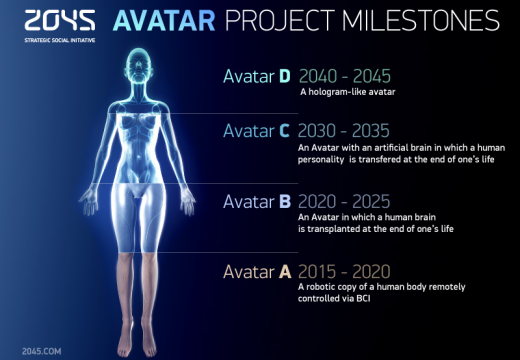
Human beings have many aces up their sleeves compared to other living species on Earth. In terms of our physical properties we seem to strike just the right balance of capabilities. Our weaknesses are typically compensated for by certain advantages in a very smooth and complementary manner.
We are an evolutionary proof that the strongest, fastest or biggest aren’t necessarily the best. We’re neither the strongest, nor the fastest, nor the biggest, yet we manage to accomplish more than any other species on the planet.
It could be said that this praise of human superiority is some kind of human chauvinism, but it may be interesting to note that we’re the only ones who can make that kind of judgment. Other species aren’t even capable of reflecting on their nature in an intellectual manner. They cannot be chauvinists even if they tried. If we weren’t generally superior we probably wouldn’t be here talking about it.
Perhaps the biggest advantage we have is our disproportionately bigger reliance on external tools compared to other species. Animals sometimes use tools as well, but none to the extent to which we do today. Our opposable thumbs in combination with the ability to think analyticially, structurally and logically allowed us to build technologies which largely make up for any biological disadvantage we could imagine.
This is why it’s a bit ironic to see people criticize human reliance on technology. By criticizing it they’re criticizing the very thing that made us what we are, the very thing that makes us different from animals, or other animals if you will.
If you’d argue that the difference isn’t in technology, but in reasoning capabilities I would argue that one is simply a natural consequence of the other. What use is the capacity to reason if understandings to which we come through it are not applied; and applied science is technology.
Creating technologies which make up for our biological disadvantages is, however, just scratching the surface. We already went far beyond that. We didn’t just give ourselves the power to fly, the power of speed, the power of strength etc. through the use of machines under our control. We are beginning to give ourselves powers which no other species that we know of on this planet ever had, and powers that we have never had.
Some of these powers we already take for granted. Internet and wireless communication are a good example. Manufacturing robots rapidly producing complex and precise structures on our behalf are another. Space flight and space exploration is a yet another impressive example.
Self-Directed Evolution – The Human Wildcard
What do we make of that? What does this tell us about human nature?
I think it tells us that our nature contains what I would call a “human wildcard”. While other species are typically locked in to a certain set of characteristics and limited to a slow evolution through solely natural selection, human beings seem to have the capacity to break away from this slow process, take control, and essentially do whatever we want to do with ourselves.
All we need is greater understanding of nature to begin reshaping it to our desires, and reshaping ourselves in the process. We are capable of this understanding precisely because we are capable of reasoning, and application of this reasoning through technology.
The possession of this “human wildcard” allows for a theoretically unlimited set of possibilities. The future of what it means to be human is completely open ended. We are the ones who will write it, and there is an increasing amount of evidence supporting our ability to do so.
This is because we are beginning to understand the fundamentals of what makes a living being what it is, and what makes a human person what he or she is. Advancing understanding of genetics allows us to know the code of life itself and replicate it. Advancing understanding of the human brain, in combination with advancing computer technologies, now deep into the nanotech realm and making inroads into the quantum realm, allows us to know the code of intelligence and eventually consciousness itself.
Once we know how something works we are able to alter and replicate it. Knowing the code of life and the code of consciousness allows us to create new species. Obviously, it also allows us to modify our own selves and the nature of what we are in very fundamental ways.
In other words, we can direct our own evolution. Being self-aware, intelligent, and able to understand the workings of nature we can manipulate how it works, and by extension how we function, according to our own will.
Of course, if we get philosophical about this we would have to recognize even self-directed evolution as perfectly harmonious with evolution in general, and actually not in conflict with natural selection. Our self-awareness, and intelligence, have evolved through natural selection after all, and that they give us this ability of directing our own evolution is just a natural consequences of having these capabilities. It is just as natural as gecko’s ability to stick to walls making it able to walk on walls.
Our capability, however, is one of those capabilities we might call “meta”, probably not found in any other specie, because it isn’t just a limited-purpose ability. It is applicable almost infinitely. It’s one thing to have sticky feet. It’s quite another to have a mind that can through understanding, and application of understanding, transform anything into anything. That’s meta. That’s the human wildcard. That’s the ace up our sleeves, and those of all other species like us that may exist out there in space, and whom may have very well already achieved the potential we’re only beginning to realize today.
Crazy Talk
Speaking of self-directed evolution, the power to create entirely new species, and transform anything into anything probably sounds like crazy talk to some. It seems like crazy talk because it sounds so extreme.
The thing is, it really is extreme, but something being extreme doesn’t make it any less valid. We see it as extreme because it is far from our current comfort zone, because we fail to identify with it, because we learned to be afraid of change. Yet at the same time, few among us would deny their curiosity, and the capacity to be utterly intrigued by the potential of what I’m describing here. Whether you react with great fear or great glee your reaction confirms the significance of the possibilities presented.
The “human wildcard” is essentially the one thing that will allow humans to transcend almost all boundaries. We already understand that many boundaries we’ve set to ourselves in the past were merely perceived boundaries, and that all it took to cross them was to understand them.
However, it is just as plausible that this “human wildcard” will be the one thing that will have humans destroy themselves spectacularly. It is possible that this wildcard is an evolutionary mistake which will lead to our doom.
Either way, it is there, and it is extremely significant because it allows for these extreme outcomes. It is also therefore extremely important for us to recognize it and make sure that aside from all the “godly” power we can acquire through it we also remember to acquire the power to be responsible and self-consistent. If we fail at evolving ourselves a sense of integrity how will we keep the integrity of a human society injected with transhuman powers?
If we create a new specie yet didn’t yet evolve a way of living in peace amongst ourselves how can we expect the new specie to want to live in peace with us? History shows a dreadful record of polarization of society between opressed and the oppressors. British vs. americans, americans vs. natives, blacks vs. whites, and so on. What makes anyone so sure that if we didn’t put a stop to these polarizations that they wont arise again between humans and the machines we create at first as merely our slaves.
Godly powers come with godly responsibilities.




Follow Us!